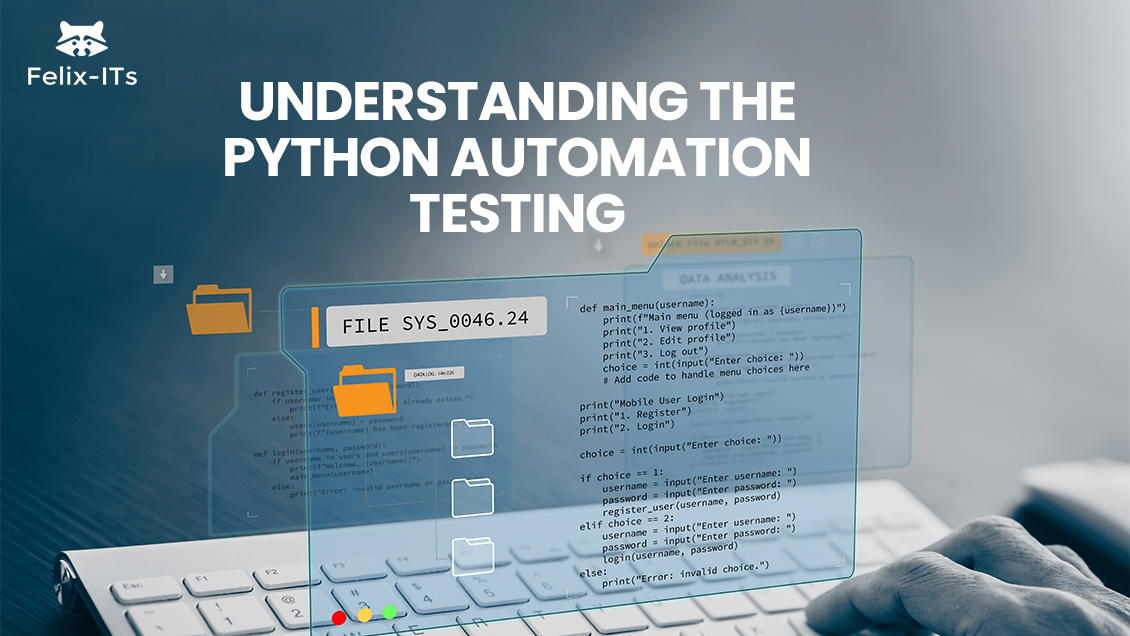For today’s digital enterprises to provide a fantastic customer experience, they want high-quality software in less time (CX). As a result, the software undergoes extensive testing before being made available on the market, which takes a lot of time. But for enterprises to enter the market quickly, software testing cycles must be shortened, making the use of automation testing conceivable.
The software can be tested using automated tools, frameworks, and scripts through the practice of automation testing. Reusable test scripts are created to test the app’s functioning using this software testing technique, cutting down on overall regression time and facilitating quicker software releases. Utilizing test automation shortens the testing life cycle’s regression time and improves quality releases.
Automated test scripts are written in many different programming languages, such as Python, C#, Ruby, Java, etc. However, Python is more closely related to the English language and easy to learn programming language.
Furthermore, compared to other programming languages, Python is an open-source language with an approachable syntax that is simple to read and grasp. While other programming languages can also be used for automation testing, it is more frequently preferred by testers.
Which programming languages work the best for automated testing?
- Python:
It is an open-source programming language used for test automation, machine learning, network servers, media tools, and desktop and web application testing. It is a simple language with lots of library support.
- Java:
One of the most often used programming languages for test automation is this one. Because it operates under the WORA (Write Once, Run Anywhere) paradigm, cross-platform testing is incredibly simple. It includes full test frameworks, packages, and data sources.
- C#
It is a desktop and web application development language that is object-oriented. One of the most popular programming languages for test automation is also this one. Windows, Android, and iOS applications and platforms are most suited for it.
- Ruby:
It is an open-source programming language that is starting to get interest from people all around the world. This language is regarded as one of the simpler programming languages due to its ease of use, productivity, and simplicity.
- Java Script:
It is yet another popular programming language for front-end development and test automation. Testers use Java Script mostly because it allows shift-left techniques, which include developers in the creation of test code.
However, Python is a highly preferred programming language among all.
How important is Python for automated software testing?
- The numerous built-in testing frameworks in this language, including Pytest, Robot, etc., provide quicker workflow building and debugging.
- It implements the code line by line and is an interpreted language, making debugging simple.
- It can be used on various operating systems, including Windows, Linux, and Mac, as it is a cross-platform language.
- Other programming languages, including C, C++, JAVA, etc., can also be used to implement it with ease.
Understanding configuration using Python:
- Start with installing Python on the operating system
- Install Python libraries for Selenium
- Obtain and set up the Pycharm editor
- Write the Selenium test scripts for a new project.
- Execute the test scripts, and then confirm them.
Reasons why testers prefer automated software testing with Python:
- Ease of usage and less verbal: Python is a relatively simple language to learn and use. Beginners who want to learn programming languages for software are advised to start with this.
- Active Community Support: Python is the most popular language for test automation because of its vibrant community support, which provides professional assistance without charge.
- Offers a wide set of tools, frameworks, and libraries: Python has a big library of frameworks built in. Python’s standard framework for test automation is PyUnit or Unittest. In addition, Python supports several alternative test automation frameworks, including PyTest, Behave, Robot, Lettuce, Nose2, Testify, etc.
- Performs parallel testing: Python is one of the languages that testers favor for automated testing since it offers parallel testing across operating systems and browsers.
- Easily integrates with CI/CD tools: One of the other benefits of Python is that its ecosystem provides tools that can be quickly linked with CI/CD solutions like Jenkins.
Best Python testing frameworks for automation testing:
- Robot Framework
- Pytest
- Unittest or PyUnit
- TestProject
- Nose2
- Behave
- Testify
- Lettuce
Conclusion
Python is a simple-to-learn and uses programming language for automated software testing. Even for testers who are just beginning their software testing career, it makes automated software testing simpler.
Get the right focus and guidance in Python courses today! Speak to our professionals at Felix-ITs a trusted Training Institute for concocting the best Python Courses in Pune.


